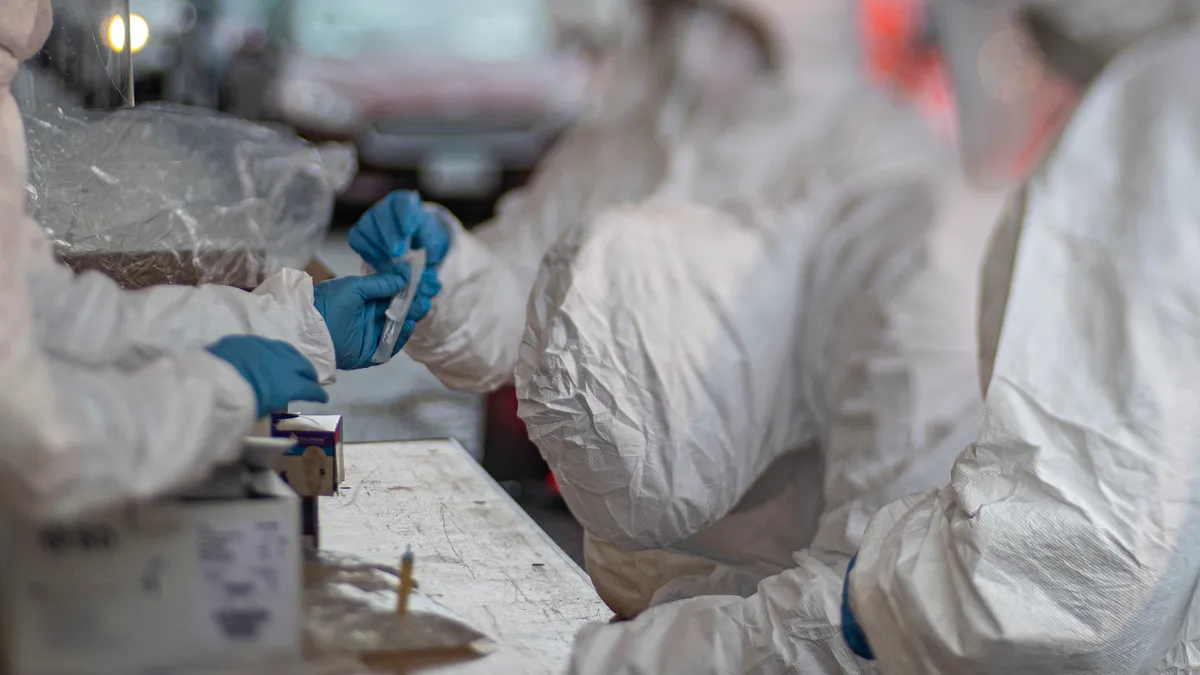Dive Brief:
- Several governors on Tuesday called for better centralized federal procurement and distribution of critical COVID-19 testing supplies, such as diagnostic swabs and reagents, saying a lack of coordination from the Trump administration is hindering efforts to ramp up testing as they look to safely reopen their economies.
- Michigan has reached 15,000 tests per day, with the goal of 30,000 tests per day, Gov. Gretchen Whitmer told the House Oversight and Investigations subcommittee. The state has lab capacity to run 200,000 tests a day, though, and supply shortages and uncertainty are a major hurdle to increasing volume, she said.
- Arkansas Gov. Asa Hutchinson said it's "been a fair balance" in terms of authority, noting he likes the flexibility granted to the states. Arkansas, which has seen minimal COVID-19 cases compared to other states, tested 8,000 people a day in May, an increase from 1,000 to 1,500 people daily in late April.
Dive Insight:
States have scrambled to develop diagnostic strategies and supply chains, driving up prices for swabs, reagent chemicals and other essential components.
"We're competing against other countries, which is to be expected. What the surprise element is here, we're competing against other states and sometimes our own federal government," Colorado Gov. Jared Polis said.
Whitmer and Polis also noted an uneven and delayed distribution effort by the Department of Health and Human Services (HHS) and the Federal Emergency Management Agency (FEMA), saying the federal government promises one thing from the national stockpile and delivers another.
State and local public health agencies, hospitals, commercial labs and pharmacies rely on many types of tests, all requiring different components. Uncertainty about federal supplies and the distribution of them is complicating states' efforts at a critical juncture in the pandemic, the governors said.
"When we expect 180,000 diverse swabs and get 180,000 foam swabs, we're grateful for the foam swabs. But that means we can't do all those other types of tests," Whitmer said.
About 17.7 million tests have been conducted to date, according to the COVID Tracking Project — little more than 5% of the population. HHS testing czar Brett Giroir told a May 12 Senate committee hearing the U.S. would be able to test between 40 million and 50 million people per month by September, mostly in point-of-care tests in hospitals and doctors' offices.
The HEROES Act, passed by the House last month, would allocate $75 billion to create a national evidence-based system for testing and contact tracing, and institute a national chain of command for supply purchasing and allocation, including a supply chain czar.
That $3 trillion bill has very little chance in the Senate, though Trump has said he's open to another round of relief legislation.















